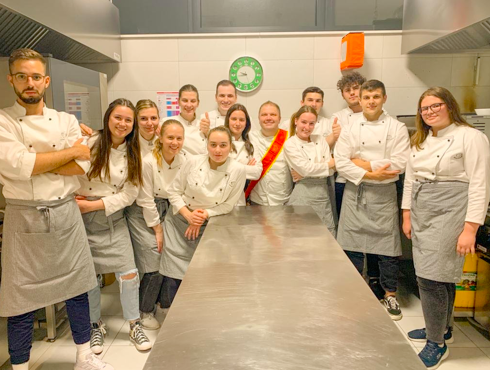Given that employment in the tourism sector is in close correlation with the growth of tourism activity in the Republic of Croatia, further pressure on new employment in the tourism and catering sector is to be expected. The trend shows the increase in attraction of rural areas, which can be seen in examples from highly developed countries. In addition to insufficiently developed domestic demand, but also due to the lack of a generally accepted development vision, the Croatian tourist offer in rural areas, especially selective tourism, is not developing fast enough. Although tourism in the rural area of Croatia, especially in the context of availability, natural beauty, and ecological preservation, should occupy a more important place in Croatia’s tourist offer, it is mostly still a poorly valued economic potential.
In accordance with the aforementioned expansion in the tourism sector, there is also a qualitative challenge, namely the development of sustainable, innovative, rural and resilient tourism. The labour market shows the need for highly educated personnel in the field of tourism, catering, and rural development, to successfully respond to all contemporary trends and challenges that are imposed on Croatian tourism. In the structure of employees in hotels and restaurants, the largest share, 50%, is held by employees with secondary education. Since they are in contact with clients and how tourists will perceive our tourist product and the entire offer depends significantly on them, their adequate education is extremely important. This is precisely what is cited as one of the biggest problems of Croatian tourism, along with the predominantly elderly workforce. These problems can be considered as a consequence of seasonal employment, when there is a greater need for labour, and therefore all those who are currently unemployed, regardless of their level of education, are occasionally employed. In order to stop the outflow of quality workforce from tourism, the aim is to achieve the sustainability of the contingent of competent workforce and eradicate amateurism by giving preference to professionalism and formal knowledge at all levels and in all segments of business in tourism.
Following current trends, we can state that the field of tourism is promising for the introduction of new university studies and is listed as one of the main strategic determinants of the European Union Multiannual Financial Framework 2021-2027. The EU’s economic recovery strategy emphasizes tourism and rural development through a financial allocation of 15 billion euros to strengthen the European Agricultural Fund for Rural Development and strengthen rural areas in the implementation of structural changes.
Based on the premises, the Faculty of Tourism and Rural Development in Požega was established as part of the University of Josip Juraj Strossmayer in Osijek, which is being developed on the foundations of the Polytechnic in Požega and will offer mentioned study programme from the academic year 2022/2023. The study programme will last 6 semesters (180 ECTS) with the title after completion – university bachelor’s degree in economics (university bacc. oec.).
General objective of the study programme: The objective of the study programme is to train students for planning, implementation, control, and evaluation of economic activities in entities operating in tourism and related activities. The main objective of the study programme is aimed at training experts to perform operational and management tasks in special types of tourism (rural, urban, congress, health, cultural, sports-recreational tourism, etc.), for-profit and non-profit sectors and public organizations related to the field of tourism.
Specific objectives of the study programme:
1. The objective of the programme is to train students to use business models and manage business processes in the field of marketing, management, accounting, finance, human resources, as well as other supporting economic activities in tourism-hospitality entities and entities with activities related to tourism. It includes teamwork in the creation, marketing, and sale of high-quality tourist services through continuous adaptation to changes in the tourist market, respecting the principles of sustainable development of the tourist destination.
2. The objective of the programme is to train students to perform operational work in interdisciplinary fields related to tourism (mathematics, statistics, informatics, law, gastronomy, communication) with the aim of improving user satisfaction. The objective is aimed at developing intellectual abilities related to non-economic areas, such as negotiation skills, leading meetings, analytical data processing, creating websites and digital documents, protecting personal data, managing business processes in the field of gastronomy, etc.
Novi studijski program usko je vezan s projektom Otkrivanje ruralne baštine te će rezultati projekta direktno utjecati na stečena znanja budućih studenata koja će primjenjivati u profesionalnom razvoju.
The new study program is closely related to the project Uncorking rural heritage: indigenous production of fermented beverages for local cultural and environmental sustainability, and its results will directly affect the acquired knowledge and competences of future students, which they will apply in their professional development.
Authors: Berislav Andrlić, Dalibor Vranić


